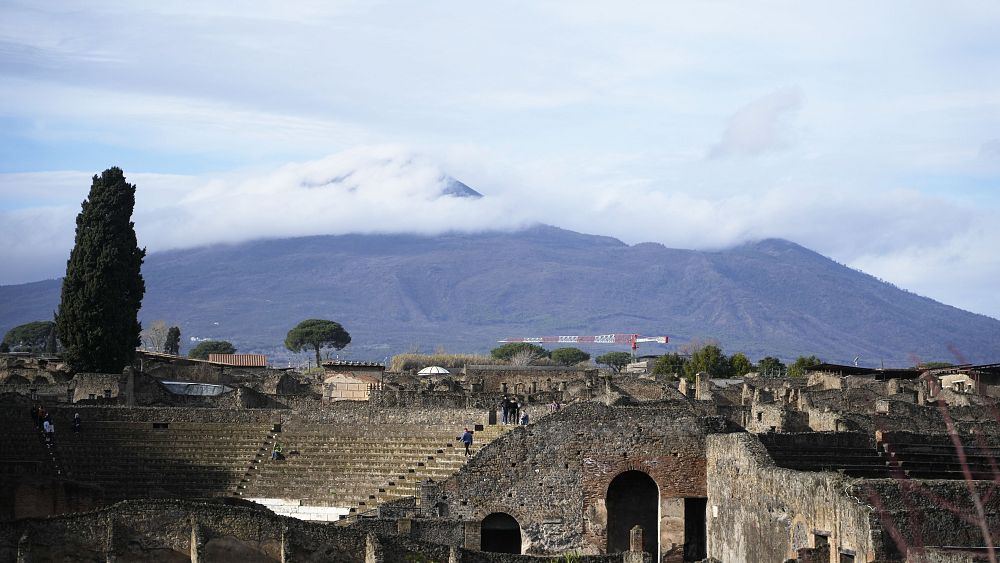
Since 1997 in Sarajevo, the ‘Roads of Friendship’ project has been closely intertwined with the Ravenna Festival, bringing a message of peace and unity between cultures.
‘To embrace is to open one’s arms and then hold’
This year, the two famous archaeological sites of Pompeii and Jerash in Jordan are the backdrop to the tale of the fate of thousands of Syrians forced to live in refugee camps. For Muti, music is the highest form of politics and brings people to embrace each other with sincerity.
“Opening the arms is made up of two movements,” explains the conductor, “the first: opening to welcome. The second movement is to squeeze and then open your arms, dropping them and saying ‘it’s up to you now’.”
Classical meets traditional Syrian music
“Music is a world language,” Nouran Husni Moh’d Mehom, a violinist, told Euronews.
“So even though we do not speak other languages, like Italian for example, we have music in common.
“The presence of Italian and Jordanian musicians playing together allows us to learn from each other.”
In 2020, Euronews followed the Vie dell’Amicizia and maestro Riccardo Muti in his beautiful concert at the archaeological site of Paestum, not far from Pompeii, in honour of the Syrian people forced into a diaspora in Jordan because of the war.
Three years later, a few days after the concert in Ravenna and Jerash, the Pompeii of the East, the music of the ‘Roads of Friendship’ still resounds powerfully in the Grand Theatre of ancient Pompeii.